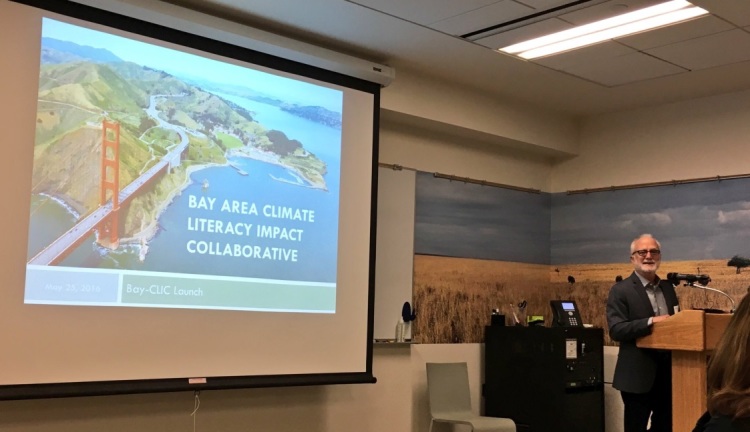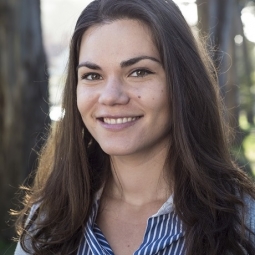Launching the Bay Area Climate Literacy Impact Collaborative
Publication Date
Image

Story/Content
For nearly two years, the Bay Area Climate Literacy Impact Collaborative (BayCLIC) has been galvanizing some of the most well-known and well-regarded environmental education institutions in the Bay Area behind the common agenda of improving climate literacy and action in the region. During this time, the group determined its strategic plan, created a sustainable governance structure, and identified priority initiatives that will direct our next one-three years of work, all while establishing consensus across more than 30 organizations. Last Wednesday, we were pleased to be able to launch BayCLIC publicly and share out not only what resources and services Bay-CLIC hopes to soon offer—with opportunities for new partners to get engaged—but also put a necessary spotlight on the importance of climate change education.
President & CEO of the Golden Gate National Parks Conservancy, Greg Moore, opened up the meeting by getting right to the core of why everyone was in the room: to elevate climate education. Greg highlighted how the San Francisco Bay Area is particularly vulnerable to climate change and warmed up the crowd by sharing his personal experiences talking to family members about climate change.
Following Greg, Ann Reid, Executive Director of the National Center for Science Education, articulated the need for more professional development opportunities for educators on climate science, detailing their recent report, “Mixed Messages.” The report found that: there is dearth of climate science knowledge among America’s public school teachers, over 30% of educators are giving mixed messages on the causes of climate change, and educators desire to know more.
Milton Chen, Senior Fellow at the George Lucas Educational Foundation, followed Ann’s comments by presenting on the opportunity within environmental education to address these challenges. He enlivened the room with success stories in place-based experimental learning models, touching on the unique niche that non-formal education inhabits by providing complementary learning opportunities outside of the classroom. After their presentations, Milton and Ann took part in a panel discussion that delved deeper into the most pressing issues in climate education, such as how educators might inspire behavior change through their climate education programs, which can oftentimes be new or uncomfortable, and very difficult.
Finally, we dove into presentations from BayCLIC members themselves, representing the steering committee and working groups. They provided an overview of BayCLIC, our formation, our mission and vision, and went into more detail on the three initiatives that we will be working on in the coming months.
With a turnout of almost 70 individuals—comprised of educators, scientists, government representatives, and other climate communicators—the collective knowledge and dedication in the room was incredibly impressive and heartening. Being fortunate enough to work with a number of inspiring partners, the Institute is keenly aware of the fact that the Bay Area has a strong community of folks dedicated to improving climate education and the sheer turnout for last week’s launch affirmed this. BayCLIC’s launch signaled a new and exciting chapter in our work and we’re honored and eager to continue to support it into its next phase.
To learn more about BayCLIC, please visit our website.


